FULL HASS/ HSIE Curriculum - 31 Lesson Plans, 3 Summative Assessments & 27 Additional Hands-On Learning Tasks (Year 3)
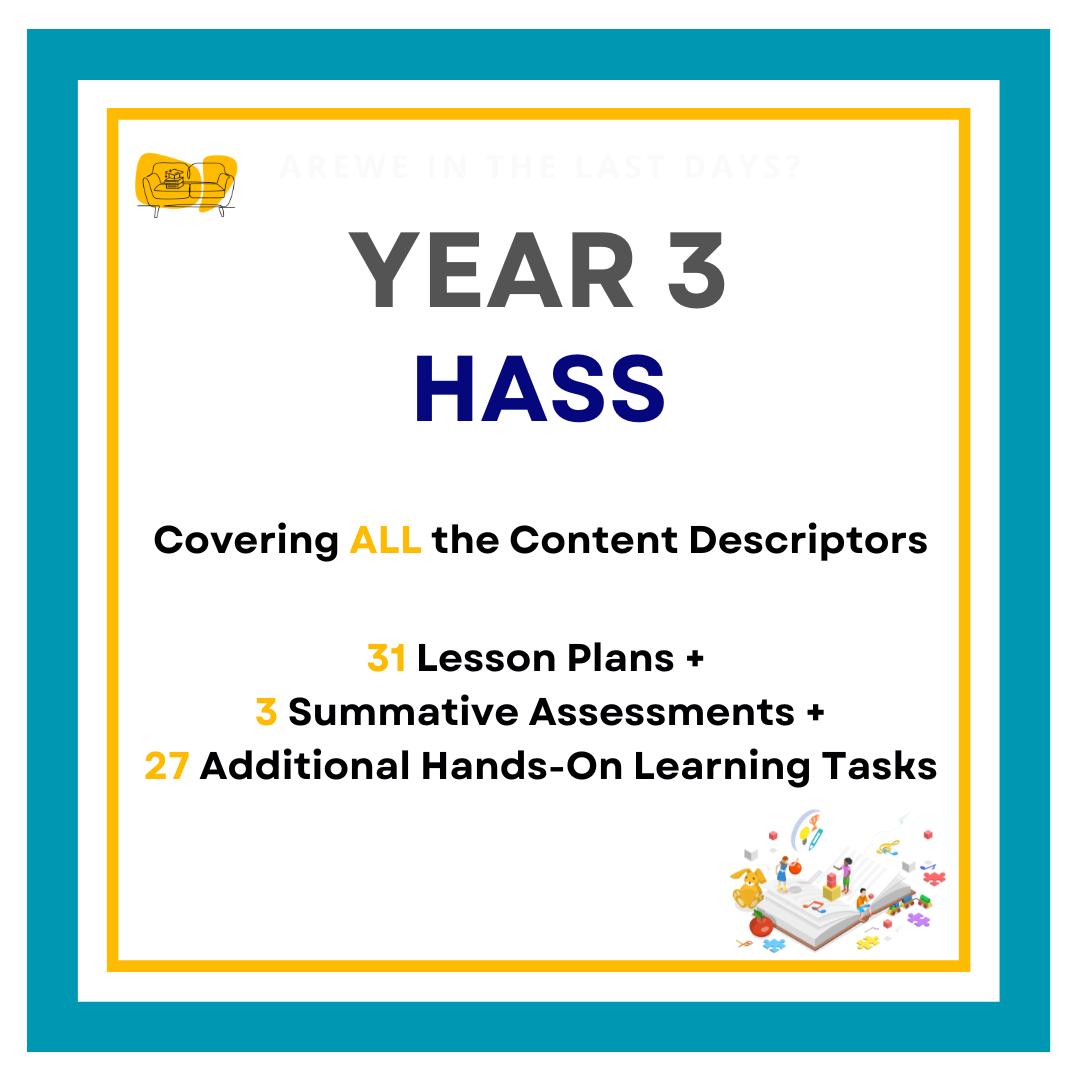
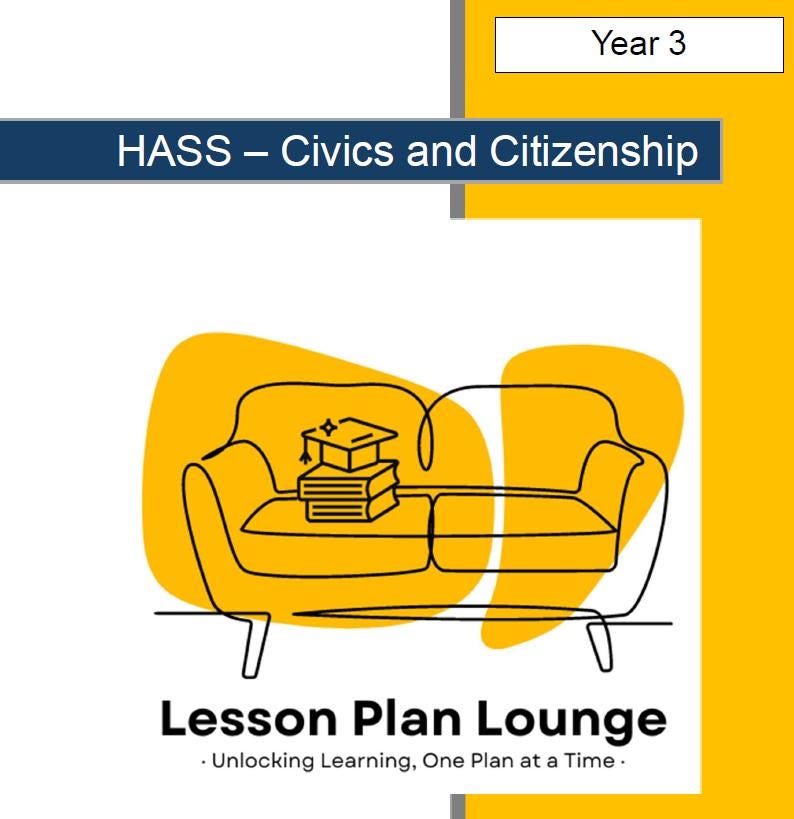
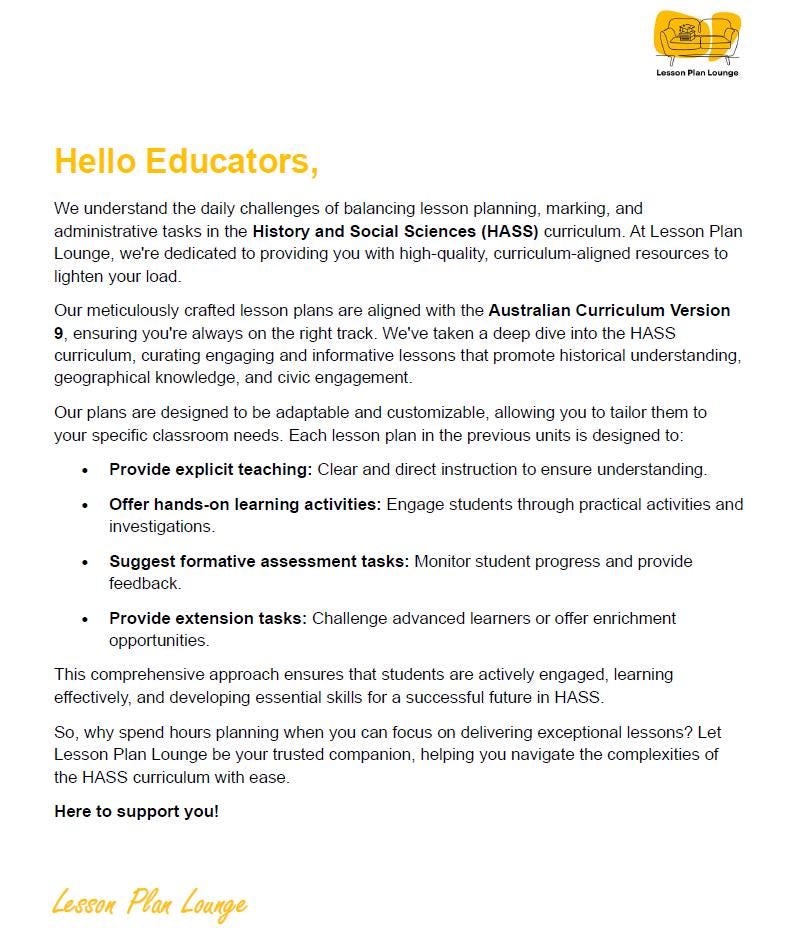
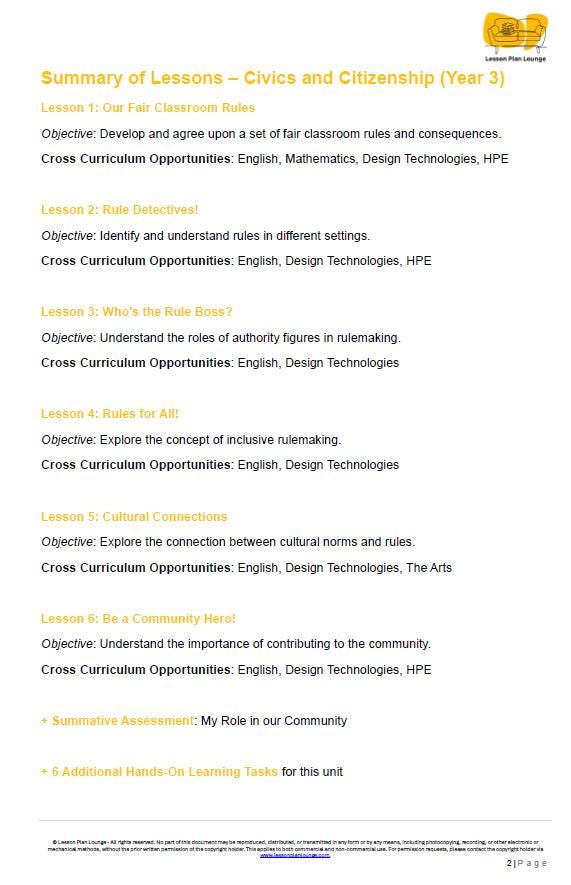
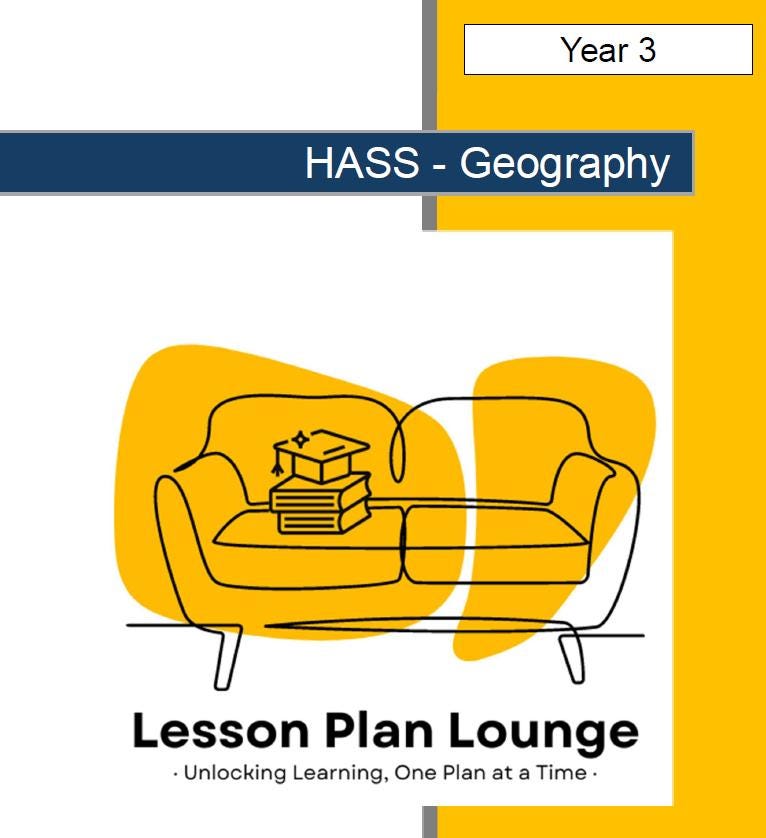
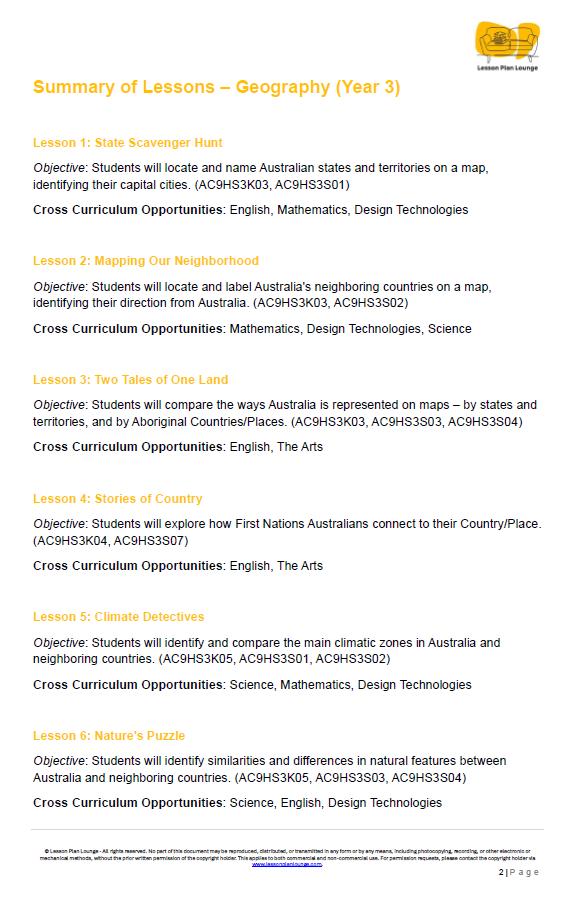
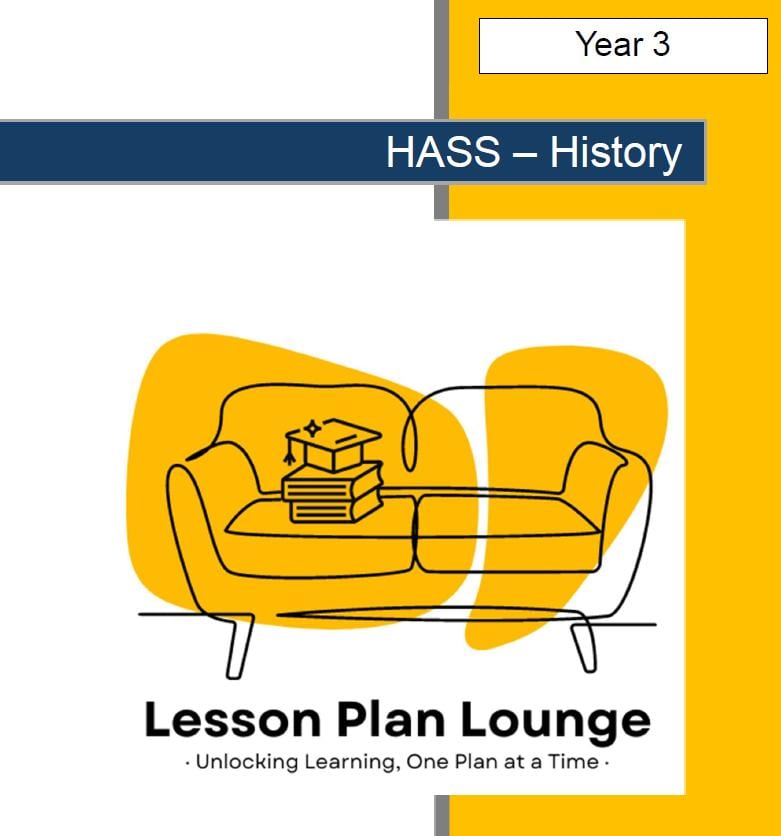
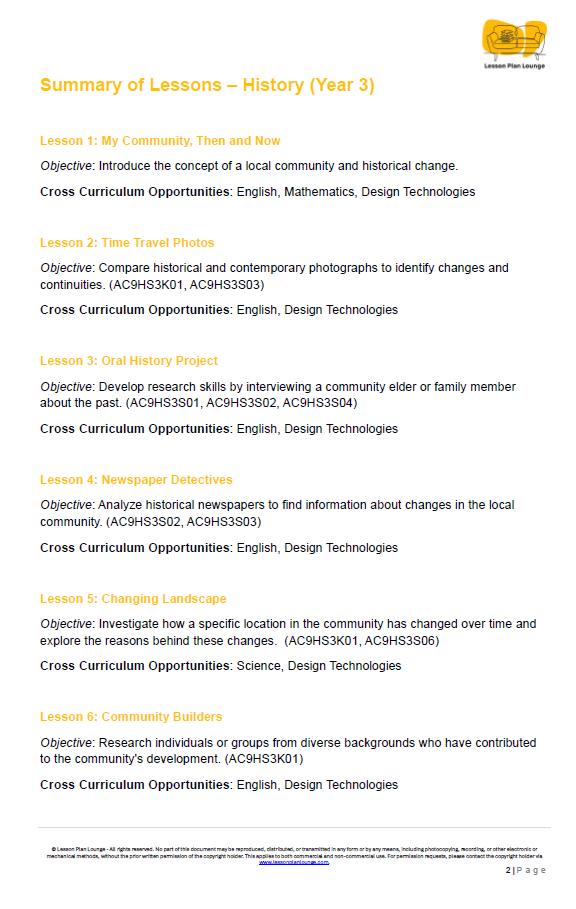
$12.65
These HASS (Geography, History and Civics & Citizenship) lessons offer: 31 hands-on lessons + 3 Summative Assessments (incl. marking rubric) and 27 Additional Hands-On Learning Tasks (Year 3)
……..
Covering:
History:
AC9HS3K01 - causes and effects of changes to the local community, and how people who may be from diverse backgrounds have contributed to these changes.
AC9HS3K02 - significant events, symbols and emblems that are important to Australia’s identity and diversity, and how they are celebrated, commemorated or recognised in Australia, including Australia Day, Anzac Day, NAIDOC Week, National Sorry Day, Easter, Christmas, and other religious and cultural festivals.
Geography:
AC9HS3K03 - the representation of contemporary Australia as states and territories, and as the Countries/Places of First Nations Australians prior to colonisation, and the locations of Australia’s neighbouring regions and countries.
AC9HS3K04 - the ways First Nations Australians in different parts of Australia are interconnected with Country/Place.
Civics & Citizenship:
AC9HS3K06 - who makes rules, why rules are important in the school and/or the local community, and the consequences of rules not being followed.
AC9HS3K07 - why people participate within communities and how students can actively participate and contribute to communities.
General:
Questioning and researching
AC9HS3S01 - develop questions to guide investigations about people, events, places and issues.
AC9HS3S02 - locate, collect and record information and data from a range of sources, including annotated timelines and maps.
Interpreting, analysing and evaluating
AC9HS3S03 - interpret information and data displayed in different formats.
AC9HS3S04 - analyse information and data and identify perspectives.
Concluding and decision-making
AC9HS3S05 - draw conclusions based on analysis of information.
AC9HS3S06 - propose actions or responses to an issue or challenge that consider possible effects of actions.
Communicating
AC9HS3S07 - present descriptions and explanations, using ideas from sources and relevant subject-specific terms.
Including: hands-on activities, explicit teaching content, formative assessment options, differentiation strategies, extension tasks, summative assessment (incl. marking rubric), cross curriculum opportunities, outdoor learning opportunities, early career/ real life education (related jobs) and materials needed (per lesson).
